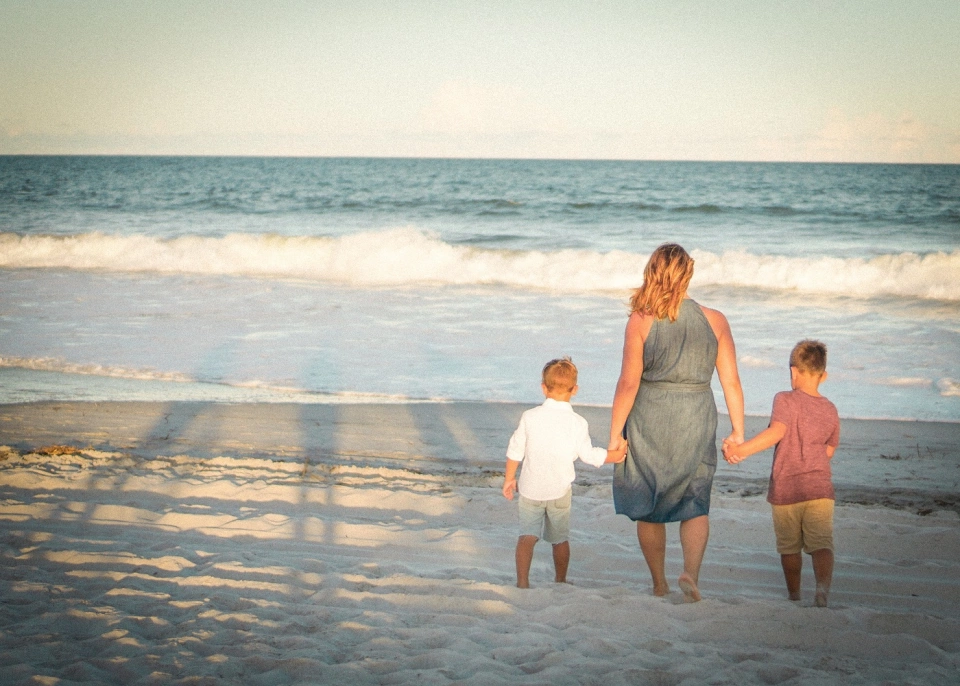Getting divorced in South Australia.
Published on Tuesday 09 February, 2021 by Nic Kernahan
The laws around divorce and family law can be a bit of a mystery. Our divorce lawyers have prepared some common important divorce questions to help you navigate getting divorced in South Australia.
It can be hard to know what questions to ask a divorce lawyer, especially early on. This article addresses some frequently asked important divorce questions that we commonly receive, but if you have any questions about how to divorce in South Australia that aren’t answered on this page, please give us a call for a free initial consultation – when it comes to family law in SA, experience matters and we’re here to help.
Can you get divorced straight away?
We’re often asked, “Do I need to be separated before I can divorce?” If you’re getting divorced in South Australia, you must be separated for at least 12 months before you can apply for a divorce. If you’ve been married for less than two years, you may also have to attend marriage counselling before you can apply for divorce.
How long do you have to be separated before a divorce?
If you’re getting divorced in South Australia, you must be separated for at least 12 months before you can file an Application for Divorce.

How long does it take to get a divorce in South Australia?
Once you file your Application for Divorce, it usually takes another three months until the final Divorce Order is made. If there are any difficulties with locating your spouse, the process could take longer. If you think that you’ll have problems locating your spouse, it’s a good idea to speak with our caring and experienced team who may be able to help you minimise the delays.
Can de facto couples get a divorce in South Australia?
Only legally married couples can obtain a divorce. People in a de facto relationship cannot go through the divorce process in South Australia.
How do I separate from my partner?
Separation happens when you and your spouse or partner stop living together as a couple. This is the same for married and de facto couples. Either of you can make the decision to separate – it doesn’t need to be a joint decision.
Once you’ve separated, you might want to inform agencies such as Centrelink and the Child Support Agency (particularly if you have children), as you may be entitled to new or different financial payments as a single person. Our family lawyers can give you advice about these processes.
Do I have to move out during a separation?
No. Often, one person will tell the other of their decision, and one of you might decide to move out of the family home. Sometimes it’s simply not practical to move out due to financial restraints and you might keep living together in the same house. That is viewed as being “separated under the same roof.” No longer living as a couple can be evidenced by:
- Having separate finances
- No longer sharing a bedroom
- No longer attending family events together
- Cooking and eating separately
I don’t want a divorce. Do we both have to agree to get a divorce?
No. The divorce process in South Australia allows either one of you to apply for a divorce once you’ve been separated for 12 months. You don’t have to agree to make that application together. However, you can oppose the application if you don’t agree that you’ve been separated for 12 months.
Do I have to get divorced?
No. You can choose to remain legally married, even though you’ve separated from your spouse. Of course, your former spouse might make the application for divorce instead. If you want to remarry, you will need to be divorced – but it is possible to enter into a de facto relationship if you’re separated from your former spouse but not yet divorced.
However, once you’ve separated there are other issues that you need to think about, such as updating your will or making one if you haven’t done so before. You should speak to our Johnston Withers Lawyers family law team about the wider implications of your separation, regardless of whether you were married or in a de facto relationship.
What if I got married overseas? Can I still get a divorce in Australia?
Yes. How to get a divorce in Australia if married overseas is a very common enquiry, but as long as you meet the divorce requirements in Australia of being either an Australian Citizen, or are living in Australia permanently, or have been for at least 12 months before you make the application for divorce. You’ll need a copy of your marriage certificate to include with your application for divorce. If that certificate isn’t in English, it will have to be translated for the Court.
Do I have to go to court?
If you have children aged under 18 years and you’ve made the application for divorce individually, then you or your lawyers will have to attend court for the divorce hearing. The Court will need to be satisfied that proper arrangements are in place for the children and may want to ask questions about those arrangements. Your divorce lawyer can talk on your behalf.
If you make the application jointly with your spouse, neither of you need to attend the court hearing.
I took my partner’s name when I married. Can I change my name before the divorce goes through?
Yes. If you want to use your maiden or birth name, it can be as simple as showing your birth certificate to a particular agency, like Medicare. Visit the South Australian Registry of Births, Deaths and Marriages for more information.
Can I change my children’s surnames now that I’ve separated or divorced?
Besides your own, name changes after divorce (such as your children’s surnames) require the agreement of the other parent or an Order of the Court. Our divorce lawyers can give you advice about what to do if you’re unable to obtain the agreement of the other parent.
How does custody work in a divorce, and how does property get divided in a divorce? When does this happen?
Who gets custody of a child in divorces in South Australia? This can be one of the biggest stressors for couples going through a separation and divorce. Getting a divorce is separate to custody issues and dividing up the assets and liabilities that you both might have. You don’t have to wait until you’re divorced to attend to these. A divorce is the legal ending of the marriage. It’s often the case that people need to sort out arrangements for children and financial matters fairly soon after they’ve separated.
Importantly, there’s only a 12 month period after the divorce is final in which to resolve a property settlement or to apply to court for property orders if you’ve been unable to reach an agreement. You should talk with our divorce lawyers about how to divide up your property and get advice about children’s arrangements as early as you can once you have separated. You will then be able to better make decisions about your future and plan for the changes that follow a separation.
We offer a free initial consultation with our family lawyers in South Australia including Adelaide, Salisbury lawyers, Murray Bridge, Port Augusta, Whyalla, Roxby Downs and Clare lawyers.
When it comes to family law, experience matters. If you’d like assistance with how to apply for a divorce in South Australia, or advice in relation to a divorce, please call Nic Kernahan on (08) 8231 1110 or contact us online.
The content of this article is intended to provide a general guide to the subject matter. Specialist advice should be sought about your specific circumstances.

Author
Nic Kernahan
Director
Found this helpful? Share it!
Read our news and ideas by Practice Area
- Aboriginal land rights
- Agricultural law
- Asbestos claims
- Car accident claims
- Commercial and property law
- Contested wills and estates
- Conveyancing
- Criminal law
- Defamation
- Divorce
- Employment law
- Estates
- Family law
- Injury claims
- International law
- Litigation and dispute resolution
- Public liability
- Renewable energy law
- Super TPD
- Wills and succession planning
- Workers' compensation
Related posts...
Your guide to workers’ compensation claims
If you or a loved one has been injured at work, it can be challenging to navigate a workers’ compensation claim – especially during recovery. Keep reading to learn about your legal rights and entitlements.